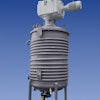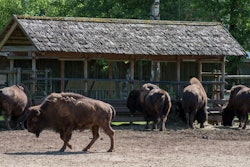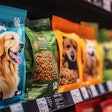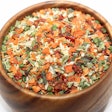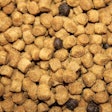
The Agricultural Improvement Act of 2018 (better known as the "Farm Bill") has been signed into law (see web box). It affects a significant number of different federal programs and policies, both related to agriculture and not. However, a few lines at the end of the bill appear to have grabbed the most public attention; that is, the paragraph amending the status of hemp to become a legal agricultural crop. Does this herald the inclusion of hemp-derived ingredients in pet foods, including cannabidiol (CBD), as announced by some in the industry?
Farm Bill implications and interpretations
The pertinent section of the Farm Bill is only a couple of sentences, succinctly revising the Controlled Substances Act to clarify that "The term ‘marihuana’ (sic) does not include ... hemp." This small edit fundamentally advances the hemp industry in that a crop that has been effectively banned in the U.S. for 80 years can now be grown without restriction. Further, hemp-derived products containing less than 0.3 percent 9-tetrahydrocannabinol (THC) dry matter would no longer be a Schedule I drug under the act.
It's no surprise that the hemp industry is happy with this development, as it opens the market for hemp and its derivatives for a wide variety of purposes. However, some may be reading a little too much into it. One distributor of hemp-based medicinal products for pets boldly proclaims that its products are now "the same as ... any other agricultural commodity," and advising veterinary retailers that "federal authorities are required to treat (CBD-containing products) on your shelves just like you were selling a box of potatoes."
That interpretation is far from a consensus, though, as the U.S. Food and Drug Administration (FDA) appears to have a very different perspective (see web box). While the agency notes the impact of the Farm Bill on the Controlled Substances Act, it reminds the public that these amendments do not affect the Federal Food, Drug and Cosmetic Act; i.e., FDA's authority to regulate foods and drugs distributed in the United States. It unequivocally asserts that any product bearing claims to treat, prevent or otherwise affect a disease or condition would be subject to enforcement action as an adulterated drug unless expressly approved by the agency. Further, even without claims, it’s unlawful to introduce food (including pet food) containing added CBD (or THC) into interstate commerce, regardless of whether these substances were hemp-derived or not.
Regulating hemp plant use in pet foods
That said, FDA acknowledges that some foods can be derived from parts of the hemp plant that may not contain CBD or THC, which does open the door to hemp-based ingredients. In fact, FDA has recently issued "no questions" letters in response to three Generally Recognized as Safe (GRAS) notices regarding hulled hemp seeds, hemp seed protein and hemp seed oil for use in foods for human consumption. Unfortunately, this GRAS status does not automatically transfer to use in pet foods. Because the conditions of use may differ between species, FDA has advised that a separate GRAS determination would be needed to allow for inclusion of a GRAS human food ingredient in animal feed.
A potential alternative regulatory path to sanctioned use in pet foods is through the Association of American Feed Control Officials (AAFCO) feed ingredient definition process. AAFCO has previously welcomed the submission of petitions to allow for hemp-based animal feed ingredients, but at least as of the date of the issued guidelines, it had not received any submissions (see web box). There is (as of this writing) a "hemp update" on the agenda for the next AAFCO Ingredient Definitions Committee session at the January 2019 meeting, so perhaps there have been developments. However, because the scheduled report is only allotted five minutes and is included in the list of lower-priority items (i.e., "we'll get to it if we have time"), ground-breaking news is not expected.
So, at this time, any excitement the pet food industry may have about adding hemp-derived ingredients appears premature. Admittedly, even a cursory survey of the market reveals that it is replete with hemp-containing products for pets. That may be the result of a hesitancy for regulators to pursue rigorous enforcement in today's politically charged climate. Regardless, until there is a definitive development within AAFCO or FDA, any use still appears risky.
There may be better prospects for hemp-based pet products in "dosage-from animal health products" form; i.e., the animal equivalent to products for human consumption as allowed under the Dietary Supplement Health and Education Act. Interestingly, FDA asserts that CBD cannot be distributed as, or in, dietary supplements, so this avenue may not be a viable approach, either. However, I leave assessment and advice on that matter to the National Animal Supplement Council.


